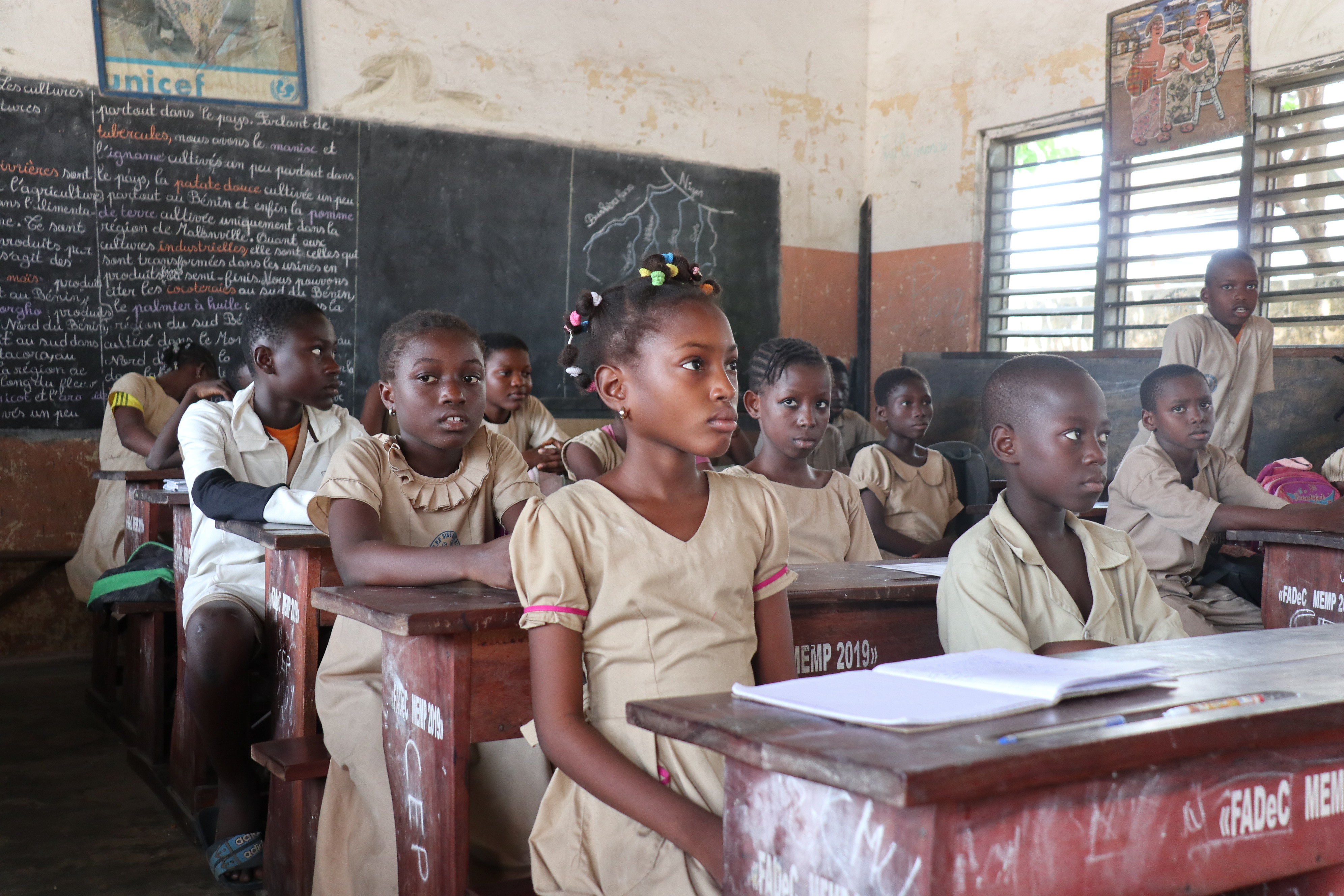Photo credit: Dramane Sessouma
In view of the existing inequalities between girls and boys in Senegal, Aide et Action and the L'Oréal Women's Fund have committed to supporting 300 vulnerable school girls at risk of dropping out of school in the regions of Kolda and Fatick. For two years, these girls will be accompanied to ensure that they remain in school until the 3rd grade.ème.
Developed by Aide et Action with the support of the L'Oréal Fund for Women, the SCOLFILLES project started its activities in January 2021 in Senegal. For two years, the project will support the schooling, retention and success of 300 girls from rural areas who are particularly vulnerable in terms of schooling, in 5 colleges in the regions of Kolda and Fatick. The objective is for at least 75% of the girls supported to reach 3rd grade.
Persistent difficulties for girls
In the two regions covered by the project, there are persistent difficulties for girls in pursuing their studies. Indeed, the low financial capacities of households in the face of the direct and indirect costs of schooling, cultural constraints, the lack of female role models, sexist stereotypes and common discriminatory practices in the school field are all obstacles to their schooling. All these obstacles have a real impact on the progress of young girls, since in 2019, only 22.6% of them reached the last year of secondary school in Kolda and 51.6% in Fatick, with a success rate for the Brevet de fin des études moyennes of 55.5% and 43.9% respectively.
The identification of girls particularly at risk of dropping out of school was carried out during February by the teachers themselves. In each school, they filled in forms based on information such as lateness, absences, learning achievements, class participation, etc. The analysis of these data made it possible to determine the number of girls at risk affected by each of the factors selected; these represent 24.5% of the total number of students in the five schools.
Multidimensional vulnerability
The information collected also allowed us to better understand the difficulties they faced. Among the girls accompanied by the project, 267 come from very poor families who cannot afford the cost of schooling; 238 have difficulty collecting the school supplies needed for the start of the school year; 197 do not have access to three meals a day and 57 are orphans. On the socio-cultural level, 70% of the girls come from families for whom the schooling of girls is badly perceived; 61 of them are expected to marry and 14 others have no birth certificate. In terms of education, 105 girls (35%) have serious learning difficulties and are unable to reach the set competency thresholds and 55 girls are irregular in class. Regarding health, 7 girls live with a disability, 35 girls suffer from chronic illnesses and 23% (70 girls) are unable to treat themselves when they are ill; 7 of them are pregnant. Also, 51 girls reported being victims of harassment, abuse, insults, stigmatisation or mockery.
A current and major challenge
Based on this analysis and thanks to the support of the L'Oreal Fund for Women, Aide et Action is developing activities to improve the situation in a sustainable manner. Thus, the actors of change such as opinion leaders, local elected officials, village chiefs, religious guides, or women role models will be sensitized to these issues. Teachers will be trained and supported to encourage the participation, involvement and motivation of girls in the learning process. Young girls will receive education on sexual and reproductive health (SRH). They will be offered appropriate tutoring with the distribution of digital tablets and home learning materials. Finally, a "mentoring" system for girls will be set up to provide them with advice and psychological support.
" The project arrives on timeA teacher at the Collège d'Enseignement Moyen de Dialambéré said. Keeping girls in school, especially in secondary school, is a major challenge. By addressing them, you have targeted the vulnerable category in the education system. For a number of reasons, our girls are leaving school early and the expenses incurred by families up to now are falling through. "And he concludes on the importance of the involvement of men: "It is important to work with male parents, as they are the ones who give their daughters away in marriage.






